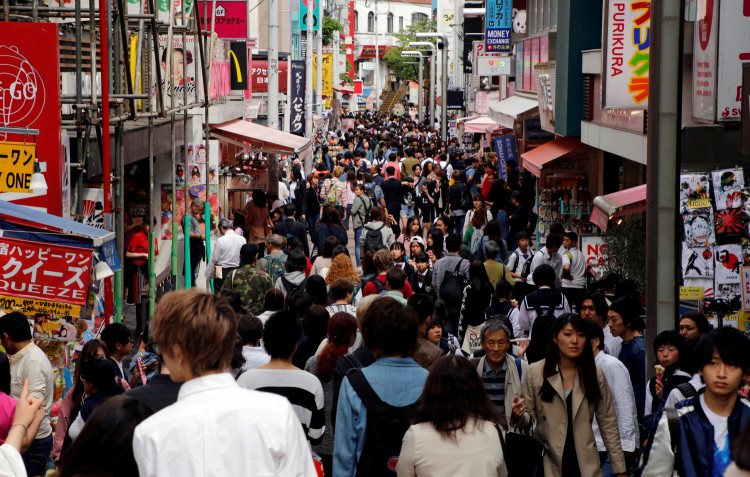The world's third largest economy by GDP and the world's second largest developed economy has contracted at its most rapid pace within the last four years, data from Japan's own Cabinet office showed.
Specifically, its GDP shrunk an annualized rate of 2.5 percent in the July-September quarter, Reuters reported, citing obtained data from the Cabinet Office. The rate at which it contracted was the worst experience in the country since the quarter of 2014.
Japan's capital expenditure component of GDP slid 2.8 percent from the second quarter. This was much worse than what analysts expected at 1.6 percent descent and a terrible decline from the initial estimate of measly 0.2 percent. Reuters noted that this was the largest decrease since the third quarter of 2009.
Japanese businesses had also resorted to budget cuts while the spending habit among private individuals has also lessened. The latter accounted for nearly 90 percent of GDP. There has also been a crippling slowdown in domestic demand while exports contributed barely.
In October, Japanese Robot Maker Fanuc Corp cut its financial outlook for the full year, saying it was affected by trade tensions. Yaskawa Electric Corp and Canon Inc have downgraded their forecast due to slowing demand.
The downturn was attributed to unforeseen environmental disasters, according to the local government. Analysts were generally optimistic that the world's third-largest economy could easily recover by next year. Still, there were some worries coming from the possible impact that may come from the ongoing China-US trade war. Particularly, trade tensions could cripple Japan's global growth and stunt its export industry.
Japanese businesses may limit their spending plans as they wait and see about the results of the trade conflict, Takeshi Minami, chief economist at Norinchukin Research Institute, said.
The outgoing chief economist of the International Monetary Fund, Maurice Obstfeld, also noted the shrinking GDP of Japan, adding that the slowdown was felt across Asia and Europe. The United States, while it will post strong growth among the economies, will not be excused from the global slowdown, Obstfeld said as quoted by The Wall Street Journal.
China, on the other hand, is showing signs it could overtake the United States as the world's largest economy. Indeed, IMF October estimates for China is at 62 percent the size of the United States in 2017. IMF now projects that China could grow by 73 percent against the United States by 2023, according to the Wall Street Journal.






